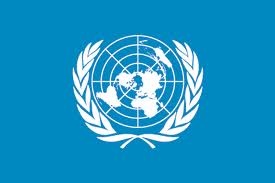

Human Rights Committee: Serbia Needs to Do More in Ensuring Protection of Minority Rights, Tackling Violence against Journalists, Human Rights Defenders. This is Report from Human Rights Committee where Serbia has been obliged to provide regular reports on the situation of human rights in Serbia. The March Report left Chair of the Committee to exclaim, "the situation on the ground does not give the Committee too much cause to be happy."
The Serbian Representative(s) conceded the failures in implementation and disconnect between reality on the ground and form. However, the Serbian Representative(s) also pressed the agenda with respect to Kosovo: "Ms. JAŠAREVIĆ-KUŽIĆ expressed hope that the Committee would respond positively to the delegation’s suggestion that the United Nations Interim Administration Mission in Kosovo (UNMIK) submit a separate report on compliance with the Covenant in Kosovo and Metohija."
Below is summary of proceedings provided by UN Department of Public Information. (The full "minutes of Committee hearing" can be provided upon request, and we at Diplomatically Incorrect will be pleased to facilitate your Request).
---
Delegation Concede Need to Enhance Investigations, Strengthen Penalties
Citing critical gaps between a number of admittedly excellent laws and proposed legislative amendments on the one hand, and the actual status of civil and political rights in Serbia on the other, experts of the Human Rights Committee pressed that country today to do more on several fronts, including the protection of minority rights, the effective functioning of its courts and grave instances of violence against journalists and human rights defenders.
“The situation on the ground does not give the Committee too much cause to be happy,” said Zonke Zanele Majodina, Chair of the Committee and expert from South Africa, as the 18-member body charged with monitoring compliance with the International Covenant on Civil and Political Rights concluded its consideration of Serbia’s second periodic report.
While noting that the delegation had been forthcoming on the problems of implementation and how much work was still required to advance the human rights of the Serbian people, she emphasized that many minorities, including the Roma, internally displaced persons and the “legally invisible”, still faced significant difficulties.
Suggesting that Serbia’s administration of justice appeared to be flawed, Krister Thelin, expert from Sweden, highlighted complaints from citizens about the length of proceedings, the scarcity of judges, untimely decision-making and the absence of legally based decision-making. The country’s Constitution provided for an independent judiciary, but recent “serious” reforms would cut the number of judges to 330, seemingly worsening the situation, he said.
At the same time, he said, according to reports from non-governmental organizations, significant percentages of Serbians convicted of criminal offences — and even higher numbers in civil cases — had not been represented by a lawyer. Expressing concern at those figures, he also pressed the delegation to review reforms in its legal aid system. He also suggested that the Government had wielded an “inappropriate” tool in prosecuting the Director of the Humanitarian Law Centre for defamation.
Cornelis Flinterman, expert from the Netherlands, said it was commendable that Serbia considered any declaration of ethnic affiliation to be a personal right, rather than an obligation. Yet that meant no information could be provided on minority representation in Government service, which made it difficult to adopt policies to promote the representation of minorities, who were very much underrepresented in the public sector.
Also commending Serbia’s efforts to eliminate human trafficking, including its ratification of the Council of Europe Convention on Action against Trafficking in Human Beings, he nevertheless pressed the delegation to provide the Committee with an update on specific actions taken to address the issues raised in its previous concluding observations in 2004 over the State’s failure to notify victims of their rights.
Gerald L. Neuman, expert from the United States, said he was concerned that the spectre of impunity was eroding a number of vital human rights protections among certain groups — from journalists and human rights defenders to lesbian, gay, bisexual and transgender persons.
In a similar vein, Nigel Rodley, expert from the United Kingdom, said he had been “taken aback” by news that the gravest form of torture attracted a penalty of only eight years in prison under the Criminal Code, which seemed low for a crime considered a grave offence in terms of the Convention against Torture and Other Cruel, Inhuman or Degrading Treatment or Punishment.
Responding to the Committee’s comments, a member of the Serbian delegation said it had tried to paint a picture of a country firmly committed to and deeply engaged in reforming its laws to better protect the civil and political rights of its citizens. The delegation conceded a number of shortcomings in implementing recent judicial reforms, specifically in terms of the transparency of judicial selections.
One delegation member said that two models for providing free legal aid had been drafted by one working committee, which was currently weighing how to balance such a provision with the Government’s ability to fund it. Another said that while judicial procedures were long, tolerance for that state of affairs was growing short, and the Serbian saying “justice is slow but attainable” was rapidly being replaced by the slogan “slow justice is no justice”.
Another member of the delegation said that despite clear political will to ensure full protection for human rights defenders and journalists, there was still a need to enhance the efficiency of those investigating such attacks, and strengthen sanctions handed down to the perpetrators. Agreeing that eight years was an insufficient penalty for torture, another delegation member said that a working group on reforming the Criminal Code would consider the Committee’s comments in that regard.
In the afternoon, the Committee began the second reading of its draft “general comment 34” on article 19 of the International Covenant on Civil and Political Rights, which deals with the right to freedom of opinion and expression. It moved swiftly through the first 10 paragraphs, adopting some of them with changes proposed during the day’s discussions.
---
The problem of human rights in most states with a history of totalitarian tendencies and human rights abuses is that functional application of laws severely undermines what is formally on paper. From the security services, to politicians, to citizens, there is an understanding that laws will be selectively applied to discourage the "other" on one hand while immunizing state favored programs and individuals. This is more than not executed under the guise of nationalism.
By Ambassador Muhamed Sacirbey
Face Book at "Diplomatically Incorrect"
Twitter - DiplomaticallyX



